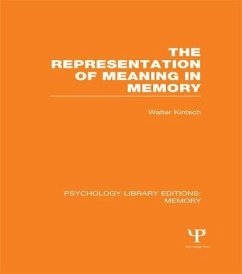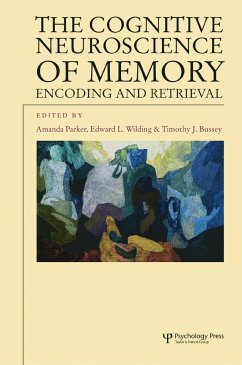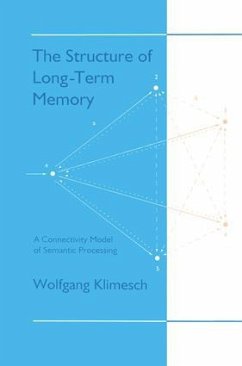
Emotional Memory Across the Adult Lifespan
Versandkostenfrei!
Versandfertig in 1-2 Wochen
50,99 €
inkl. MwSt.
Weitere Ausgaben:

PAYBACK Punkte
25 °P sammeln!
Though many factors can influence the likelihood that we remember a past experience, one critical determinant is whether the experience caused us to have an emotional response. Emotional experiences are more likely to be remembered than nonemotional ones, and over the past couple of decades there has been an increased interest in understanding how emotion conveys this memory benefit. This book begins with a broad overview of emotion, memory, and the neural underpinnings of each, providing the reader with an appreciation of the complex interplay between emotion and memory. It then examines how ...
Though many factors can influence the likelihood that we remember a past experience, one critical determinant is whether the experience caused us to have an emotional response. Emotional experiences are more likely to be remembered than nonemotional ones, and over the past couple of decades there has been an increased interest in understanding how emotion conveys this memory benefit. This book begins with a broad overview of emotion, memory, and the neural underpinnings of each, providing the reader with an appreciation of the complex interplay between emotion and memory. It then examines how emotion influences young adults' abilities to store information temporarily, or over the long term. It explains emotion's influence on the memory processes that young adults use consciously and on the processes that guide young adults' preferences and actions without their awareness. This book then moves on to describe how each of these influences of emotion are affected by the aging process, and by age-related disease, providing the reader with a lifespan perspective of emotional memory. Within each of the domains covered, the book integrates research from cognitive psychology, cognitive neuroscience, and neuropsychological perspectives, examining both the behavioral and thought processes that lead to emotion's effects on memory and also the underlying brain processes that guide those influences of emotion. This book will be of interest to researchers and graduate students in memory, emotion, and aging, working in the fields of cognitive psychology, cognitive or affective neuroscience, and developmental or lifespan psychology.














